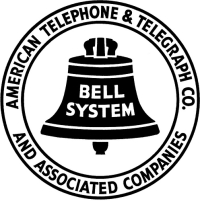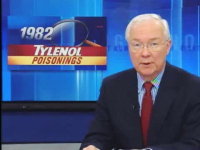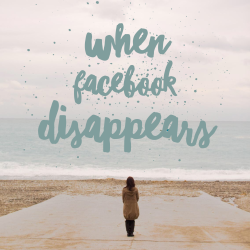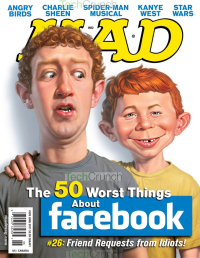This is the difference between Facebook and the other “Cloud Czars,” as I call them. (Picture from the excellent blog of Lisa Vanengen.)
We don’t need Facebook. Not the way we need, in the 21st century, the information search capability of Google. Or Microsoft’s software. Or Apple’s devices. Or Amazon.Com.
Facebook, by contrast, is entirely optional. Not only is the main service optional, but so are Instagram and Messenger. We can get along very well with Snap and WeChat. The mass move can happen by word of mouse. There is a price below free, and if we don’t want to pay it we don’t have to.
This is something people like Jim Cramer don’t yet understand. This makes what is happening, or not happening, at Facebook different from what happened at Target or even Equifax. Add to that Facebook’s enormous capital budget – it’s putting $1 of every $4 it collected last year into new cloud data centers this year – and you have an existential problem.

these assets for pennies on the dollar.
Other companies will go down along with Facebook. Some won’t be missed, like Shopify. Others no doubt will be.
But the bottom line is this. You can’t take $500 billion of market cap out of this stock market, with interest rates rising and trade wars looming, without it having a huge real-world impact.
It would be well if we could fix this before things get that bad.
The problem is that what Cambridge Analytica did wasn’t a “breach.” The company used the Facebook Graph API, a tool available to any advertiser, to decide where specific messages should go. Facebook created this tool so that Coca-Cola could target Dr. Pepper drinkers with one message, Sprite drinkers with another. No one at Facebook even thought that, by using Facebook Graph, politicians could short-circuit for a few bucks the work that took Barack Obama’s team millions of man hours and tens of millions of dollars.
Trump was not elected, as I first thought, because of Twitter. Instead, he did just what the Obama campaign did, only for a fraction of the price. Consider it Moore’s Law in action.

If Facebook suffers the same haircut in this scandal that Uber faced in its scandal, you’ll be looking at a $300 billion market cap next year, and a management team headed by some hoser like Tim Armstrong of Oath. Oh, and the hit will be taken by small investors, not by private equity.
That’s a recipe for economic disaster.

Until that model is put into practice, until Facebook’s data is protected from access by anyone outside Facebook, no more ads. That needs to be the message, right now. You sacrifice the current quarter to maintain the franchise. You take the hit to save the body. It’s like Johnson & Johnson putting caps on medicine bottles. The message must be delivered loud, a TV ad with Zuckerberg reading a script and doing a walk-and-talk, five minutes, with lots of impressions. Followed by a press tour. It can’t just be something you put on your blog.

Facebook has made us all over-sharers. I’ve been chided by my family for sharing too much of what we’ve gone through, and I’ve had to change. My wife and son aren’t on Facebook, at all. My daughter uses our cat as her profile picture, and rarely visits. When we want to connect with one another, we call, text, or email.
There’s nothing wrong with belonging to a group, but what is shared with my fellow Kirkwood Neighbors or Rice alumni should stay there, not become grist for some politician’s mill. If a politician wants to scrape together profiles of all the country’s voters, they should be made to do what President Obama did and collect that data themselves, only now under regulations that prevent abuse.
The Facebook scandal offers important lessons, just as Trump offers important lessons. Facebook, like Trump, show us what not to do. I doubt Trump will survive the lesson, and until recently I didn’t think that of Facebook or Zuckerberg.
Now I’m not so sure.











